Portland, OR Pollen and Allergy Report for Summer 2023
Pollen Allergy Trends in Portland, OR
When is pollen lowest in Portland, OR?

February
Lowest month total PPM
Avg. PPM
When is pollen highest in Portland, OR?

April
Highest month total PPM
Avg. PPM
How does pollen in Portland, OR compare to Oregon?
Portland has a higher average PPM than the state of Oregon.
Portland yearly avg PPM:
Oregon yearly avg PPM:
How does pollen in Portland, OR compare to the USA?
Portland has a higher average PPM than the USA.
Portland yearly avg PPM:
USA yearly avg PPM:
Is pollen worse this year in Portland, OR?
Spring 2023 was worse than spring 2022.
Spring 2023 PPM:
Spring 2022 PPM:
Average PPM in Portland, OR
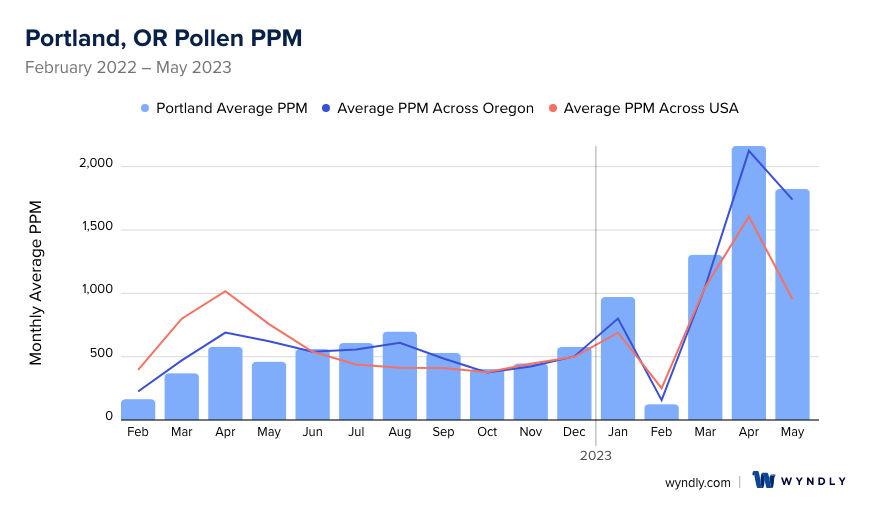
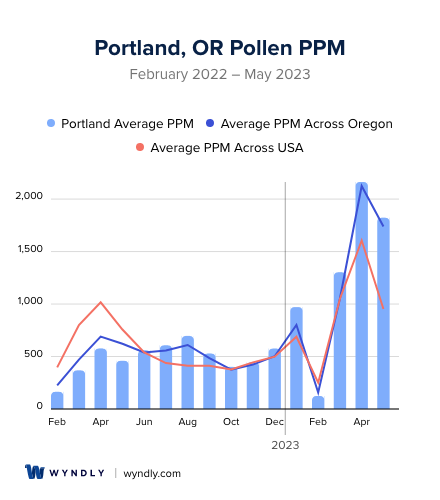
Portland, OR Pollen and Allergy Breakdown by Month
Grass
When is grass pollen highest in Portland, OR?
March has the highest grass pollen in Portland, OR with an average PPM of
When is grass pollen lowest in Portland, OR?
December has the lowest grass pollen in Portland, OR with an average PPM of
Tree
When is tree pollen highest in Portland, OR?
April has the highest tree pollen in Portland, OR with an average PPM of
When is tree pollen lowest in Portland, OR?
April has the lowest tree pollen in Portland, OR with an average PPM of
Weed
When is weed pollen highest in Portland, OR?
August has the highest weed pollen in Portland, OR with an average PPM of
When is weed pollen lowest in Portland, OR?
February has the lowest weed pollen in Portland, OR with an average PPM of
Portland, OR Pollen Monthly Breakdown by Pollen Type
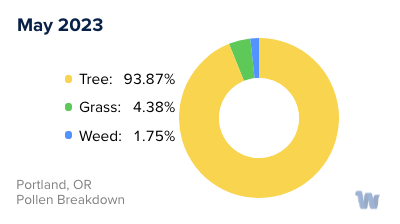
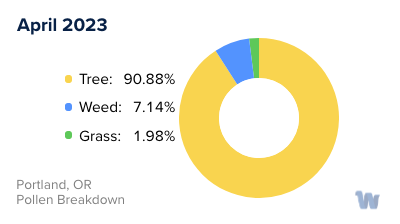
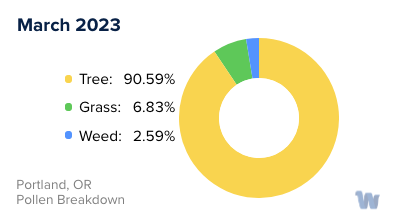
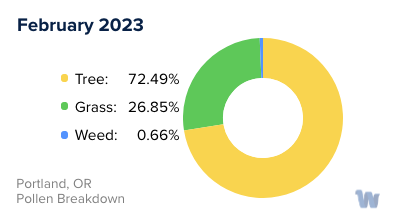
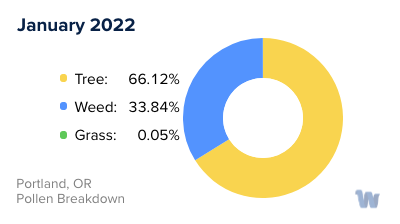
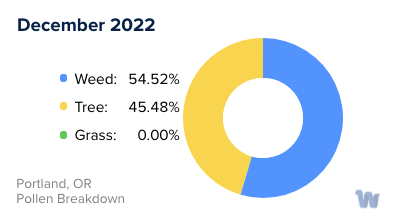
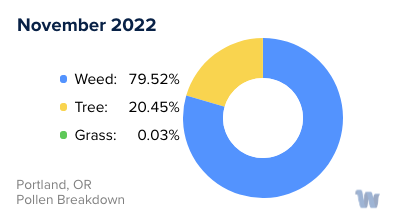
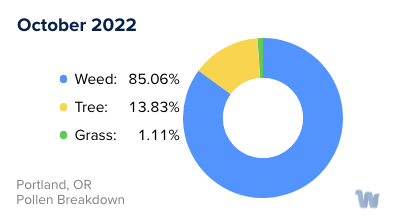
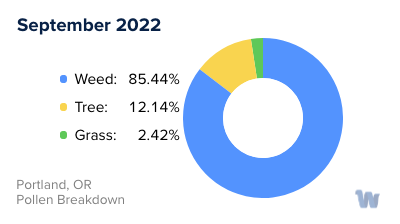
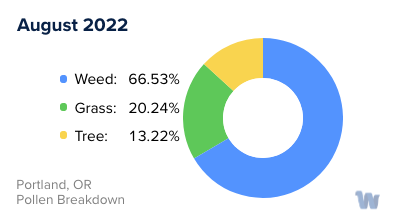
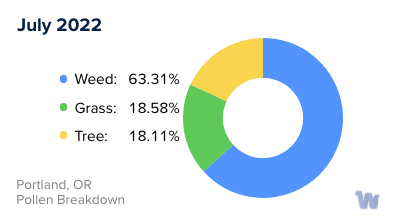
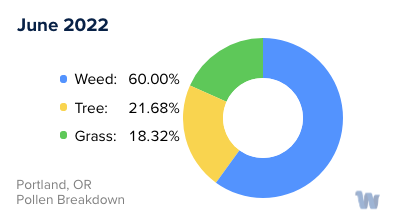
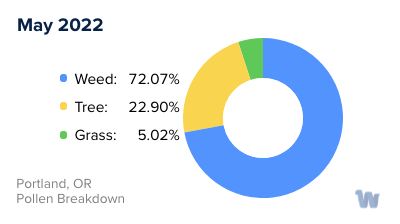
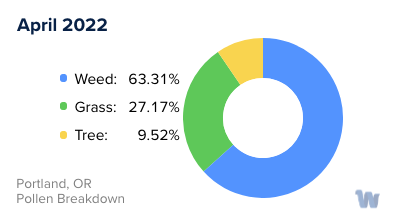
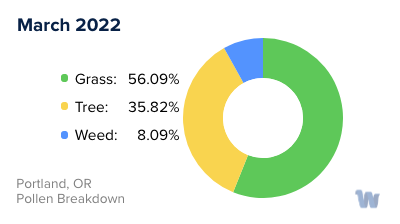
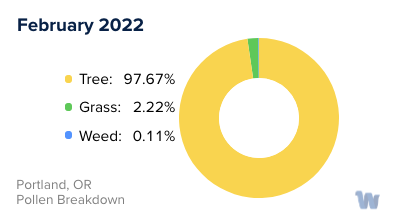
Pollen and Hay Fever in Portland, OR
Pollen allergies, often referred to as hay fever, are a significant concern for residents of Portland, Oregon. This city is a veritable bloom box, with an abundance of trees, grasses, and weeds that release pollen throughout various seasons of the year. Understanding the types of pollen and their respective seasons can provide insights into why allergies may flare up at certain times.
Portland is nestled in a lush valley, where a variety of trees grace the landscape. From spring to early summer, the city's trees such as oak, cedar, and pine release their pollen, blanketing the city in a fine, often invisible dust. These trees' pollens are lightweight and can be carried by the wind, causing hay fever symptoms in sensitive individuals.
The summer months usher in a different allergy challenge. As the tree pollen season winds down, grasses take the lead in pollen production. Portland's lush lawns and grassy meadows, dominated by ryegrass, bluegrass, and fescue, begin to release their pollen. Grass pollen is especially prolific, and those with a sensitivity to it may experience heightened allergy symptoms during this time.
As summer gives way to fall, weed pollen becomes the primary allergen source. Weeds such as ragweed, sagebrush, and nettles release their pollen, marking the final major seasonal pollen surge. These plants, with their prolific pollen production, ensure that Portland's hay fever season extends well into the autumn months.
In Portland, these staggered pollen seasons create a virtually continuous cycle of potential allergy triggers. The specific timing and severity of each pollen season can vary year-to-year based on weather conditions and other environmental factors. This continuous exposure to varying types of pollen underscores the importance of awareness and preparedness for Portland residents with pollen allergies. However, despite the challenges, the city's beauty and verdant landscape offer a unique charm that residents wouldn't trade for the world.

